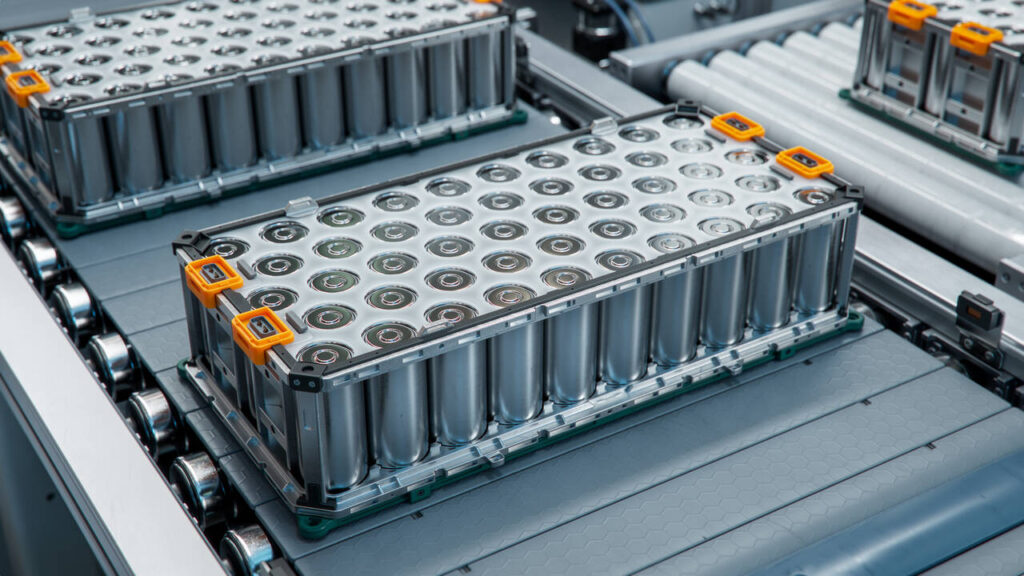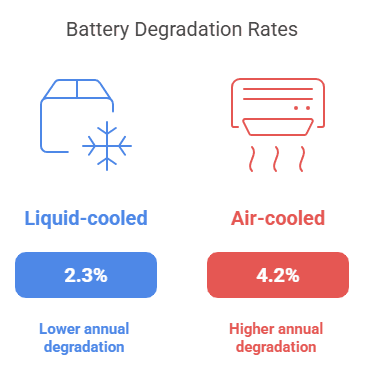
Electric vehicles (EVs) have firmly planted themselves on the road and aren’t going anywhere. From everyday commuters to high-performance models, EVs are becoming the go-to choice for more drivers every year. With fuel prices on the rise and stricter emission laws in place, it’s no surprise more people are making the switch. But even as EVs gain traction, one question still lingers: How long do those batteries really last?
Unlike your trusty old gas guzzler that can keep chugging along with a bit of TLC, EVs run on lithium-ion batteries that inevitably degrade over time. But before you start picturing your EV battery fizzling out like an old phone, let’s get one thing straight—modern EV batteries are built to last. Understanding how and why can make all the difference when deciding if an electric car is right for you.
How Long Do EV Batteries Last? The Truth May Surprise You
Your electric vehicle’s battery isn’t just a power source; it’s the beating heart of your car, dictating performance, range, and long-term value. But how long before that heart starts to weaken? EV battery lifespan isn’t as simple as a number on a spec sheet. It’s shaped by chemistry, charging habits, climate conditions, and the silent battle against degradation. Some fear that EV batteries degrade like a smartphone’s, rapidly and irreversibly, but that’s far from reality. With advancements in lithium-ion technology, regenerative braking, and thermal management, today’s EV batteries are built to endure. So, will your battery last five years? Ten? Longer? The answer is more fascinating than you think. Let’s dive into the science, the myths, and what you can do to extend the life of your EV’s most critical component.
Average Lifespan of an EV Battery
On average, an EV battery is expected to last between 15 to 20 years under moderate driving conditions. This is a significant improvement from earlier predictions, which assumed EV battery replacement would be necessary within a decade.
Battery degradation—the gradual loss of battery capacity over time—is one of the key factors in determining lifespan. A decade ago, the average degradation rate was around 2.3% per year. However, thanks to improvements in battery technology, the rate has now dropped to 1.8% per year. At this pace, an EV battery could still retain around 82% of its original capacity after 10 years, allowing it to remain functional for up to 20 years or more if current trends continue.
These advancements mean that an EV battery will likely outlast the vehicle itself, making EV ownership more sustainable and cost-effective than ever before. Additionally, most manufacturers offer EV battery warranty coverage for 8-10 years, ensuring peace of mind for buyers.
Factors Affecting Battery Lifespan
EV battery longevity depends on multiple factors, from environmental conditions to driving habits. While modern batteries are designed to last longer than ever, understanding these key influences can help maximize their lifespan.
Temperature
Temperature plays a crucial role in electric vehicle battery life. Extreme heat accelerates chemical reactions inside the battery, leading to faster degradation, while extreme cold can temporarily reduce capacity and impact performance.
- The ideal operating temperature for lithium-ion batteries is 68°F to 86°F (20°C to 30°C).
- Frequent exposure to temperatures outside this range can cause premature capacity loss.
- EVs with active thermal management systems help regulate battery temperature, extending lifespan.
Charging Habits
Not all charging methods affect the battery equally.
- DC fast charging (Level 3) generates more heat and can accelerate degradation, especially in hot climates.
- Level 2 charging (home or public charging stations) is gentler and recommended for long-term battery health.
- Using fast charging occasionally is fine, but relying on it regularly may shorten electric car battery lifespan.
State of Charge Management
Keeping an EV battery between 20% and 80% of its charge is one of the simplest charging best practises to extend its lifespan.
- Charging to 100% or allowing the battery to drop below 20% frequently puts extra stress on battery cells.
- Many EVs now come with battery management systems (BMS) that limit overcharging and deep discharges to help maintain battery health.
Usage Patterns
How you drive and charge your EV affects its battery lifespan.
- Frequent deep discharges (draining the battery close to 0%) can accelerate degradation.
- Aggressive driving habits, such as rapid acceleration and hard braking, increase power demands and thermal stress on the battery.
- Moderate driving and consistent charging habits can help maintain long-term battery performance.
Battery Chemistry
Not all lithium-ion batteries are created equal—different battery chemistries impact longevity.
- Nickel Manganese Cobalt (NMC) batteries are commonly used in most EVs due to their high energy density but may degrade faster than other types.
- Lithium Iron Phosphate (LFP) batteries, found in some Tesla and BYD models, offer better longevity and lower degradation rates, though they have a slightly lower energy density.
- The choice of chemistry impacts how long the battery will last before noticeable capacity loss.
Thermal Management
The type of cooling system in an EV significantly influences battery lifespan.
- Liquid-cooled batteries (e.g., Tesla Model S) have shown lower degradation rates, around 2.3% per year.
- Air-cooled batteries (e.g., early Nissan Leaf models) degrade faster, with some showing 4.2% annual degradation in hot climates.
- Advanced thermal management systems ensure even temperature distribution, helping prevent premature aging.

Manufacturer Warranties and Estimates
To reassure buyers, most EV manufacturers offer warranties covering 8-10 years or 100,000-150,000 miles.
- These warranties usually guarantee that the battery will retain at least 70% of its original capacity within the warranty period.
- Some manufacturers, like Renault, estimate the practical lifespan of their EV batteries to be around 10 years, though real-world performance often exceeds this.
- Studies suggest that many EV batteries may outlast their warranties, potentially remaining functional for 15-20 years or more.
With proper maintenance and favorable conditions, EV owners can expect their battery to last well beyond manufacturer estimates, making EVs an increasingly reliable and cost-effective choice.
Real-World Battery Performance
While laboratory tests provide controlled estimates of EV battery lifespan, real-world driving conditions tell a different story—one that’s even more promising.
- A Stanford University study found that stop-and-go traffic and rest periods actually help batteries degrade more slowly than traditional lab testing suggests.
- Unlike constant high-load stress in lab simulations, real-world driving involves varying speeds, regenerative braking, and rest periods, all of which contribute to a longer battery lifespan.
- Some research indicates that EV batteries may last up to 40% longer than previous estimates, suggesting that modern EVs could remain viable for two decades or more with proper maintenance.
These findings challenge early concerns about rapid battery degradation and highlight the impressive durability of current EV technology.
How to Extend EV Battery Life
Maximizing an EV battery’s lifespan comes down to smart charging habits and proper care. Here are key ways to keep your battery performing at its best:
✔️ Minimize exposure to extreme temperatures – Whenever possible, park in shaded areas during hot weather and in garages during freezing conditions.
✔️ Avoid frequent use of fast charging – While convenient, DC fast charging generates more heat, which accelerates degradation over time. Use it only when necessary.
✔️ Maintain a state of charge between 20%-80% – Avoid regularly charging to 100% or depleting the battery close to 0% to reduce stress on battery cells.
✔️ Follow manufacturer guidelines – Every EV model has unique battery management recommendations—adhering to them ensures optimal performance.
✔️ Keep vehicle software updated – Automakers frequently release software updates that optimize battery efficiency and longevity. Always install the latest updates.
By following these practices, EV owners can significantly extend battery life, reducing long-term costs and improving sustainability.
Conclusion
Modern EV batteries are proving to be far more durable than once expected. With improved battery chemistry, lower battery degradation rate, and real-world performance exceeding lab estimates, many EV batteries could easily outlast the vehicles they power.
For consumers, this means that range anxiety and battery replacement fears are becoming less of a concern. With proper care, an EV battery can remain functional for 15-20 years or more, making electric vehicles an increasingly cost-effective and sustainable transportation choice.
The future of EVs is brighter than ever—and with ongoing advancements in battery technology, longevity will only continue to improve.
Want to Learn More About EV Batteries?
Still have questions about EV battery lifespan, charging best practices, and battery replacement? Check out our EV Battery FAQ Page for expert answers to the most common questions!